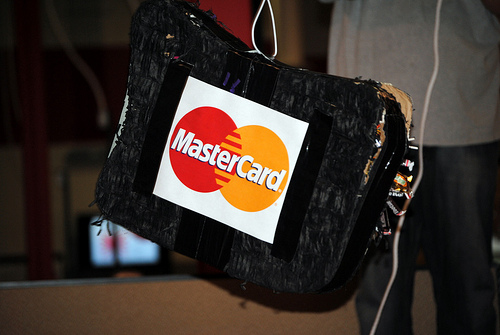 Credit card companies sometimes challenge the discharge of their debt in bankruptcy by filing an adversary proceeding. They claim that the debt was incurred by the card holder’s fraud.
Credit card companies sometimes challenge the discharge of their debt in bankruptcy by filing an adversary proceeding. They claim that the debt was incurred by the card holder’s fraud.
If they can prove it, the debt will be excepted from the discharge under §523(a)(2). The proceeding to make that determination is called a “non-dischargeability action”.
When charges may survive bankruptcy
Credit card debt may be non dischargeable in bankruptcy under either of two legal theories:
- The application submitted to get the card was fraudulent
- The card was used without an intent to repay; this is far more common
This issue used to arise only in Chapter 7 prior to the 2005 bankruptcy code amendments. Now, creditors can contest the discharge of debts in a 13 as well based on a claim of fraud.
Hot buttons for card issuers
While each card issuer has a different practice about non dischargeability actions, each of the following circumstances probably increase the likelihood that the debt may be subject to challenge by the creditor:
- Increase in credit card usage shortly before filing
- Newly issued card
- Large cash advances in months before filing
- Use of card for recent travel or vacations
- Pattern of borrowing on one card to make payments on others
- Exceeding credit limit
- Using card when unemployed or without reasonable belief that the debt can be repaid
- Large balance at filing
- Charges made after consulting bankruptcy lawyer
Generally, the longer the length of time between any particular use and the bankruptcy filing, the less likely the usage will trigger a challenge to dischargeability.
A complaint for dischargeability based on fraudulent use of the card may seek non dischargeability for certain of the charges, not necessarily the entire balance.
What options are available
If you are concerned about a challenge by a credit card issuer to the discharge of a particular debt, there are several strategies available:
- Wait to file bankruptcy so as to put more time and/or more payments on the account between the questionable usage and filing bankruptcy.
- Settle with any objecting creditor if and when they file a non dischargeability action.
- Contest the suit at trial: if you win, you may recover your attorney’s fees incurred to defend the action.
